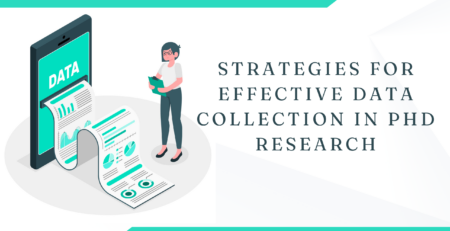What Data Needs to Be Collected for a PhD in Machine Learning?
Kenfra Research - Shallo2025-03-31T16:45:07+05:30Machine learning (ML) is a rapidly evolving field that relies heavily on data for research and model development. For PhD scholars specializing in PhD in Machine Learning, collecting the right data is crucial for generating meaningful insights, validating hypotheses, and ensuring the robustness of their models. In this blog, we will explore the essential types of data needed for a PhD in Machine Learning and how researchers can acquire high-quality datasets.

1. Defining the Research Problem
Before collecting data, it is vital to clearly define the research problem. Whether focusing on supervised learning, unsupervised learning, reinforcement learning, or deep learning, understanding the objective will help determine the type and quality of data required.
2. Types of Data Required
Structured Data
Structured data is organized and stored in databases with a defined schema, such as tables with rows and columns. Examples include:
- Financial transactions (e.g., stock market data, banking records)
- Healthcare data (e.g., electronic health records, patient diagnostics)
- Customer behavior data (e.g., purchase history, user interactions)
Unstructured Data
Unstructured data is more complex and does not follow a predefined format. Examples include:
- Text data (e.g., social media posts, research papers, news articles)
- Image data (e.g., medical imaging, satellite images, facial recognition datasets)
- Audio and video data (e.g., speech recognition datasets, surveillance videos)
Semi-Structured Data
This type of data falls between structured and unstructured data. It includes:
- JSON and XML files (e.g., API responses, web scraping outputs)
- Sensor data (e.g., IoT device logs, environmental monitoring data)
3. Data Sources for Machine Learning Research
PhD researchers need to obtain data from reliable sources. Some common data sources include:
Public Datasets
Several organizations and research institutions provide open datasets for ML research:
- Kaggle (competition datasets and real-world datasets)
- UCI Machine Learning Repository (classic ML datasets)
- Google Dataset Search (comprehensive dataset search engine)
- ImageNet (large-scale image dataset for deep learning)
- Common Crawl (web scraping dataset)
Proprietary Datasets
For domain-specific research, proprietary datasets are often used. These datasets may come from:
- Industry collaborations (e.g., partnerships with healthcare institutions, finance companies)
- Government databases (e.g., census data, traffic monitoring)
- Private company data (e.g., e-commerce logs, personalized recommendations)
Custom Data Collection
When suitable datasets are unavailable, researchers can create their own by:
- Conducting surveys and experiments
- Using web scraping techniques
- Deploying sensors and IoT devices for real-time data collection
- Collecting crowdsourced data from platforms like Amazon Mechanical Turk
4. Data Preprocessing and Cleaning
Once data is collected, preprocessing is necessary to ensure its quality and usability. Key steps include:
- Handling missing values (imputation techniques, removing incomplete records)
- Data normalization and standardization (scaling features to improve model performance)
- Noise reduction (filtering out irrelevant or duplicate information)
- Data augmentation (increasing dataset size using transformations, particularly in image and text-based ML)
5. Ethical Considerations in Data Collection
PhD researchers must follow ethical guidelines when handling data. This includes:
- Privacy and anonymity (ensuring user data confidentiality)
- Bias mitigation (eliminating biased datasets that can lead to unfair models)
- Regulatory compliance (following GDPR, HIPAA, and other data protection laws)
Conclusion
Data collection is the foundation of any machine learning research. Choosing the right type of data, acquiring it from reliable sources, and ensuring its quality through preprocessing are crucial steps for a successful PhD in Machine Learning. By focusing on ethical data handling and leveraging high-quality datasets, researchers pursuing a PhD in Machine Learning can contribute to the advancement of AI and machine learning in meaningful ways.
Kenfra Research understands the challenges faced by PhD scholars and offers tailored solutions to support your academic goals. From topic selection to advanced plagiarism checking.








Leave a Reply